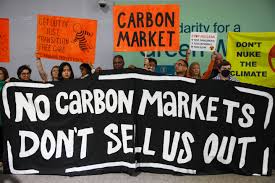New Report Warns World’s Largest Carbon Offset Projects Are Failing to Deliver Promised Emissions Reductions
— A new investigative report titled “Built to Fail? World’s Largest Carbon Offset Projects Unlikely to Deliver Promised Emissions Reductions Despite Ongoing Reforms” has sounded the alarm on the deep-rooted shortcomings of the global Voluntary Carbon Market (VCM), revealing that many of the world’s largest carbon offset projects are falling drastically short of their climate goals.
The report assesses 47 of the top 100 offset projects globally in 2024, finding that 80% of carbon credits retired from these projects were problematic, amounting to more than 47.7 million offsets that failed to reliably reduce emissions.
The findings raise significant concerns about the credibility of the VCM 2.0, especially at a time when the world is racing to avert irreversible climate tipping points.
“Climate solutions must be real, measurable, and trustworthy,” the authors warn.
“This new data suggests that the VCM is still not fit for purpose, and may be hindering, rather than helping, the global climate fight.”
Key Findings:
43 of the 47 assessed projects issued problematic carbon credits, accounting for nearly a quarter of all credits retired in the VCM in 2024.
35 projects were deemed especially unlikely to deliver genuine emissions reductions, including 14 of the world’s top 25 projects.
93% of problematic projects were located in the Global South, including Brazil (host of COP30), Cambodia, and Turkey, despite these regions being the least responsible for historical emissions.
Verra, the world’s largest carbon registry, was responsible for over 90% (43.6 million) of the problematic credits in 2024. Other registries such as Gold Standard, Climate Action Reserve, and ACR also issued problematic offsets.
At least 17 third-party verifiers approved flawed projects, pointing to systemic failures in the certification and oversight mechanisms.
Forestry and land use and renewable energy projects were the most common offenders, but household device and industrial projects also contributed.
None of the projects assessed had the highest confidence rating from BeZero Carbon, a leading ratings agency, and only four were rated above “moderate.”
Fundamental Failures:
Out of the 37 projects assessed in detail:
23 had a high or legitimate risk of being non-additional
14 had a risk of non-permanence
17 posed a risk of emissions leakage
19 were likely to be over-crediting
A Systemic Market Breakdown
The findings suggest that reforms under the so-called VCM 2.0 regime have failed to address the market’s most critical flaws.
The authors caution that unchecked reliance on voluntary carbon credits could jeopardize the global climate effort, given the billions of dollars and millions of lives at stake.
“The carbon offset market is increasingly saturated with credits that are neither reliable nor effective. It’s not just a market failure — it’s a climate risk.”
The report also points to opaque vetting procedures, limited accountability, and financial interests overriding scientific integrity in climate solutions.
With COP30 in Brazil approaching, and as the world teeters on the brink of breaching the 1.5°C warming threshold, the research urges global climate negotiators, investors, and registries to rethink reliance on flawed offsets.







